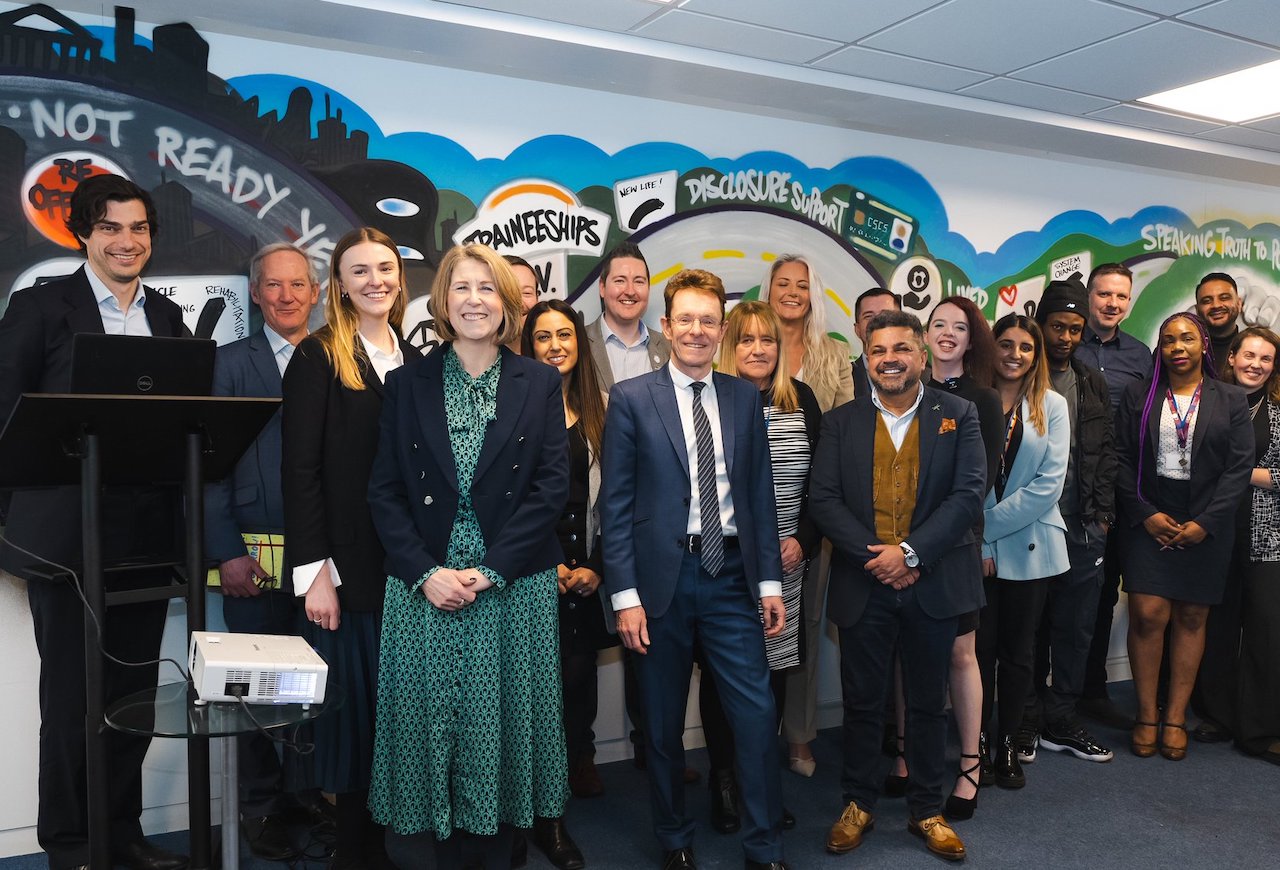Founded by a former prisoner, UK-based social enterprise New Leaf provides intensive resettlement support to serving and ex-prisoners, helping them to find employment and reducing their

New Leaf Initiative, a Birmingham-based community interest company, has launched an ethical recruitment agency that helps ex-prisoners into work with £100,000 of investment from the Sumerian Foundation.
The social lender’s involvement with the project has proved to be a positive experience in more ways than one, according to New Leaf founder Marie-Claire O’Brien.
New Leaf was founded in 2014 by O’Brien – herself an ex-prisoner – with a mission to offer intensive resettlement support to serving and ex-prisoners, helping them to find work whilst supporting other issues they may face. Since it was founded, New Leaf has supported 1,300 people, almost 500 of those in the last year.
Getting into the workplace can make all the difference, given ex-prisoners that do stay in work are significantly less likely to reoffend than those who don’t, according to UK government research.
“Many prisoners have no formal qualifications and low literacy levels, so we work on upskilling and free vocational qualifications through to traineeships for younger people. We have our own training academy. We’re very different from mainstream recruitment agencies and that’s what helps us to engage with our community,” O’Brien told Impact Investor.
First-hand experience
The lived experience of prison shared by O’Brien and other New Leaf staff allows the organisation to better understand its clients’ needs, she said. Its support extends to continued mentoring for its clients after they find jobs and maintaining good relationships with employers – both vital, given many ex-prisoners have little recent experience of the workplace and some may need extra support as they adjust to life outside prison.
Employment opportunities typically lie in areas such as construction logistics and catering – both suffering from personnel shortages since the UK left the European Union – or with companies seeking to promote social value in their employment policy, which may be a requirement if they have contracts with local government.
The social enterprise plans to place at least 100 clients into work via the recruitment agency over the coming year, as it transitions from reliance on grants to a more sustainable model, based on income from contracts signed with local prisons and employers to use its services.
Funding
In New Leaf’s early years, it was dependent on lottery funding and other grants, before accepting its first social investment in late 2019, just before the COVID pandemic hit. Some of this funding has been derived from the UK’s Dormant Assets Scheme, which redirects money left in forgotten bank accounts into social investments, and from which a further tranche has just been released.
While funding for New Leaf was welcome, O’Brien and her small staff found the financial reporting demands imposed by some financial backers hard to fit into their working days.
O’Brien was no stranger to paperwork having previously worked in recruitment and the property sector and started up another business earlier in her life. But an already heavy workload was exacerbated by New Leaf’s provision of crisis support to hard-up ex-prisoners during the pandemic – that left little time for her to handle complex financial reporting requirements.
Problems with increased bureaucracy when taking on investments is a common refrain among leaders of under-resourced small social enterprises who find it a distraction from maximising impact at the enterprise
“Emails would constantly land in my inbox asking for financial information and it was just onerous. It literally used to make me cry, because I was so busy, and it was just me and a couple of members of staff doing everything,” she said.
Eventually, after discussions with the relevant institution, reporting requirements were relaxed, enabling O’Brien to spend more time on running the business rather than doing the books.
O’Brien said these problems were greatly reduced with new lender, the Sumerian Foundation. The London-based venture philanthropy charity’s lending model emphasises impact, long-term partnerships with investee organisations and hands-on business skills support. In the UK, it targets investments that alleviate social inequality.
“Sumerian want to know what impact you are making with the money, and there is some financial reporting, but it’s much simpler. We’ve automated everything, so it’s not me banging away at a spreadsheet anymore,” she said.
From ‘strength to strength’
As important has been the social investor’s input on New Leaf’s business strategy.
“Sumerian took me on a journey over about a year when I was furiously delivering projects and not really able to take a step back and look at the business strategically. They enabled me to take a high-level view of where we were at, where we wanted to be, and the potential pilot projects that they might want to invest in,” she said.
“I think they turn social investment into how it should feel for a social entrepreneur, because it should be all about impact. It feels a lot less corporate, it’s a lot friendlier and more personal.”
The conditions for Sumerian’s investment are also less restrictive than some of New Leaf’s previous arrangements. While grant funding often came with narrow terms on how it could be spent, there is more flexibility in how Sumerian’s social investment can be used, even if it’s primary use for the recruitment agency is clearly designated.
“It’s a bit more dynamic than grant funding. If COVID comes back or whatever, you can pivot and respond with this money. Obviously, the negative is that we have to pay it back plus the interest, but the investment does come with quite flexible, patient terms,” she said. Those terms include a 12-year payback period and a cap on the amount that New Leaf has to pay back.
O’Brien said that, since the latest tranche of investment was secured in September 2022, New Leaf has been able to expand its staff to 10 people and is “going from strength to strength”.






